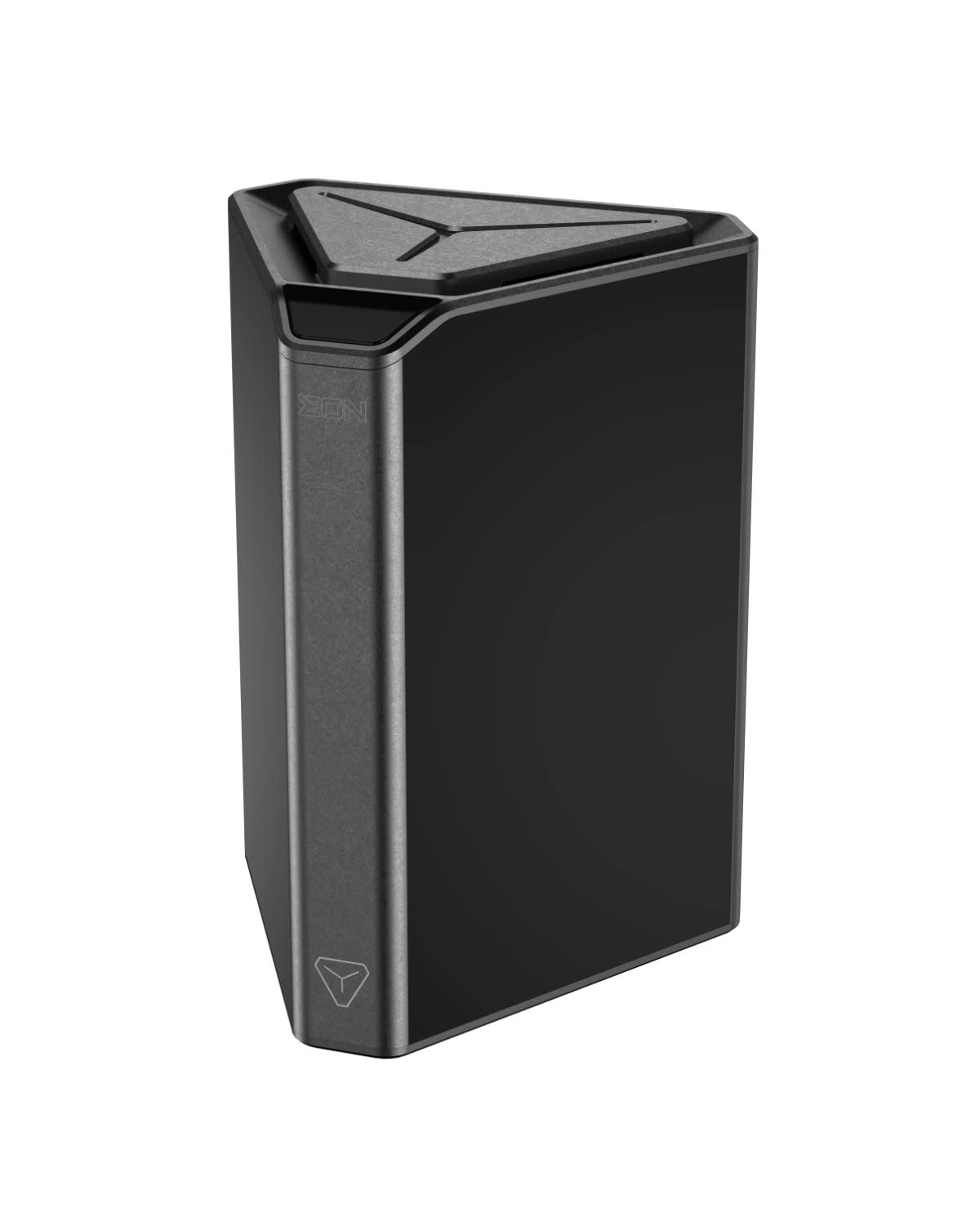معلومات عنا
دعم العملاء
احصل على التطبيق

قم بتوجيه الكاميرا لتنزيل التطبيق
حقوق الطبع والنشر © 2024 Desertcart Holdings Limited







🚀 Elevate Your Raspberry Pi Experience!
The Argon EON RaspberryPi NAS Case is a cutting-edge solution for Raspberry Pi 4 enthusiasts, featuring 4-Bay SATA hard drive ports, advanced cooling systems, and a user-friendly design that enhances performance and data protection. With integrated features like an OLED display and IR control, this case is perfect for maximizing your Raspberry Pi's capabilities while ensuring efficient workflow and safety.
| Item Dimensions D x W x H | 17"D x 17"W x 22.5"H |
| Material Type | Aluminum |
| Is Assembly Required | No |
| Compatible Devices | Raspberry Pi 4 |
R**T
Great case for your Pi
I use this for the Pi that I run as a household NAS. It works really well and keeps the Pi nice and cool.I did upgrade to a non stock fan, but that was very easy to do and you can find any number of guides on how to do that online.
C**O
EXCELLENT enclosure... needs better cooling
I love this unit it is so beautiful and well built. My only complaint is the heating dissipation system... needs a better fan even if it gets noisier... I have 1 SSD (where I have installed openmediavault), a 2.5 1TB hdd, 1 large 3.5 5400 RPM hdd and a 3.5 7500 RPM hdd and if I don't have the air conditioner on in the room I have it, the Hard disks would get really hot over 55 degrees Celsius which is not good at all for the drives. I think is better to use only NAS drives 5400 RPM or SSDs or 2.5 hdd, maybe they don't heat up that much, but overal it is a beautiful compact well built unit perfect for a home NAS and media center
D**E
Amazing concept greatly falls short in practicality
Simply put, I would not recommend this NAS case for a few reasons.1. Difficulty assembling: it was IMPOSSIBLE to insert the Raspberry Pi with the included HDMI board into the case without severely scratching the back. This is fine if you plan to keep the case because you'll likely be able to hide it with whatever drives you insert. However, no matter what angle I tried inserting the Pi in, it wouldn't go in unless I forced it into place. I'm surprised the PCBs didn't break.2. Noise level: the instructions recommend installing the Argon Eon config script to be able to manage various functions. However, once you install the script, the fan is very loud, and only gets louder with temperature increases.3. Outdated instructions: I followed all the instructions exactly as written, and kept running into an installation error with OpenMediaVault when running the suggested script. Apparently the installation will fail on the current "Bullseye" version of Raspberry Pi OS Lite, and you need to install an older OS version like "Buster". This took almost 4 hours of troubleshooting to figure out.4. Software support: this is probably the most fatal flaw with the product. The instructions recommend that you install OpenMediaVault. The problem with this is that OpenMediaVault doesn't support RAID over USB, and hence you cannot use the HDDs you've installed into the unit (unless you implement several workarounds, which are documented on the Argon forums). Even if you do it, you're on your own for managing the workarounds, which may or may not break as time goes on.I thought this would be a fun novelty project, but I cannot justify the amount of time and effort required to self-manage this as a NAS. Save your money by not buying this, and put it towards an actual NAS box.
C**S
Perfect for a NAS server running Plex and OMV
This was a fun project and took a couple hours to setup. I'm using a Pi4 4gb RAM with 2 SSD's totaling 8TB's (4tb+4tb) both NTFS format. Running Raspian OS LITE 32bit on 32gb microSD. Installing the PCB's were easy, as well as the terminal scripts. First argon script, then OMV, and finally Plex. Used NetworkChuck tutorial on Youtube to walk me through the drive mounting process. Transferred all my media from windows PC to my shared folder on the SSD's. Linked Plex on my Roku device and it connected immediately. Everything plays beautifully. All of my files are .mkv 1080p videos. Using wired Ethernet (Argon to router to Roku) with no video issues. The fan never turns on. While streaming a movie it only utilizes <10% of the RAM. No need for an 8gb RPi, 4gb is plenty. Overall I highly recommend this for a first NAS build.Couple of tips that should help you:-Turn off transcoding in Plex settings on the webUI. Use directplay only.-I wouldn't recommend HDD's due to the size and heat. SSD's stay cool.-Recommend using 2.0mm thermal pads rather than the ones provided. The RPi CPU wasn't touching the pad or heatsink. The thicker pads ensures contact with the heatsink.-NTFS formatted drives work great. No need for EXT4 format. Just make sure you hold SHIFT key down when you shutdown Windows PC with drive connected. That way you have no issues mounting the drive and creating a share folder in Raspian+OMV.
ترست بايلوت
منذ أسبوعين
منذ شهرين